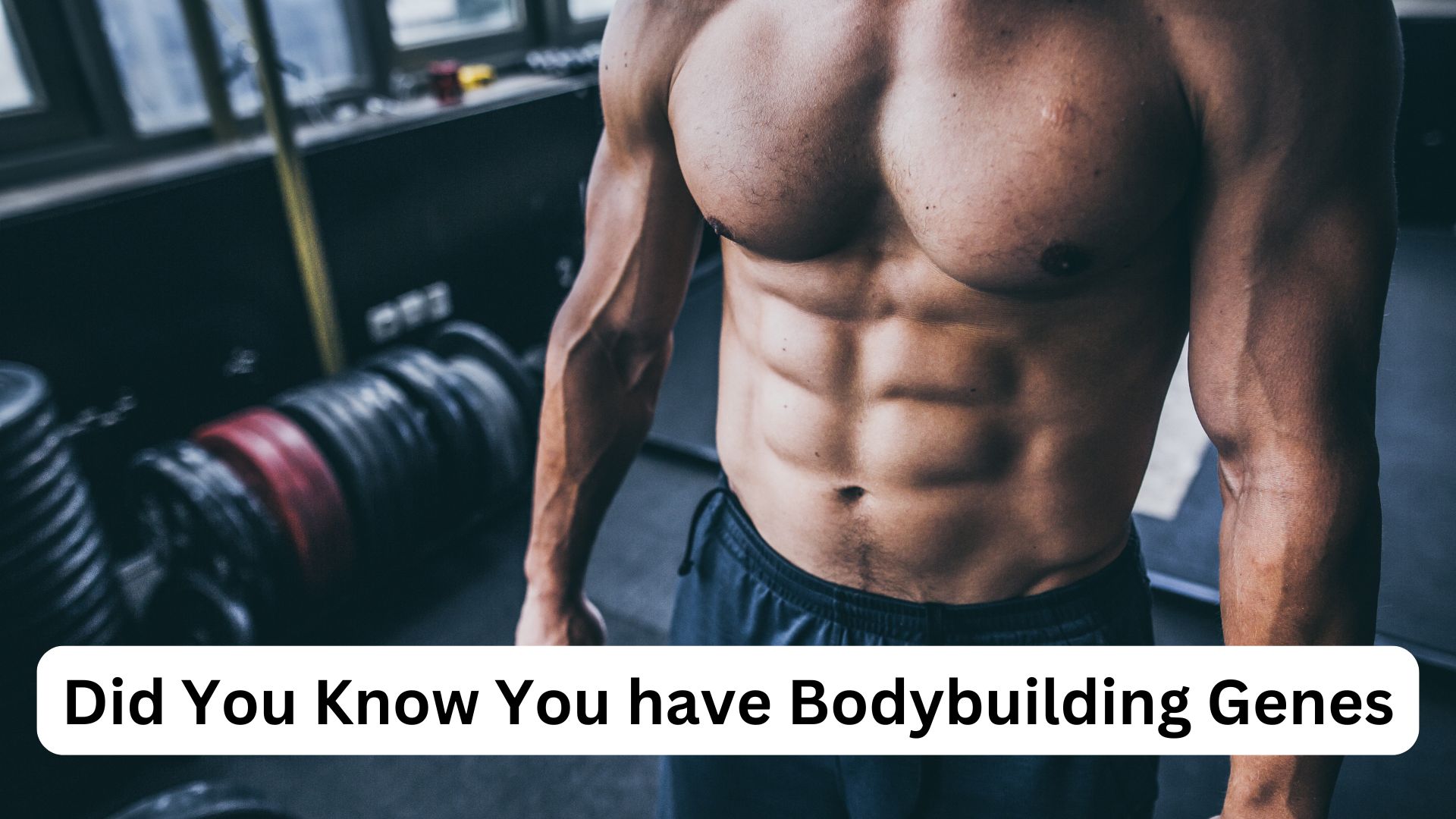Introduction
Have you ever wondered what genetic factors influence your success in bodybuilding? If you think that only hard work and the right diet will make you a good bodybuilder, you might be wrong. Bodybuilding genes affect your body composition, muscle growth, and your ability to bodybuild. In this article, we will learn did you know you have bodybuilding genes.
In this article, we will understand the signs that indicate you have bodybuilding genes, and how these genes can make fitness and muscle growth easier for you.
What are the signs of a bodybuilding genus?
1. Quick growth of muscles
If you notice rapid muscle growth, it could be a sign that you have bodybuilding genes. People who have good genes can transform their muscles into huge sizes in a very short period. This speed and ability are due to their genes.
2. Type 1 and Type 2 muscle fibers
Our muscles have two types of muscle fibers – Type 1 and Type 2. Type 1 muscle fibers have more endurance, while Type 2 muscle fibers can generate force rapidly. Having Type 2 fibers is more important for bodybuilding. If you have more Type 2 fibers in your muscles, you may have bodybuilding genes.
3. Less fatigue during workouts
Don’t you get tired quickly while working out? If you can work out hard for a long time and your energy never runs out, it shows the strength of your genes. Efficient energy use in the body and the ability to recover quickly from workouts may be part of the bodybuilding genes.
Does your body shape indicate that you are suitable for bodybuilding?

Image credits: canva.com
4. Height and body frame
Body height and frame can also be a part of the bodybuilding genes. People with tall height or large-boned bodies are conducive to building muscle. Such people usually do well in bodybuilding because their bodies can accommodate muscles well.
5. Natural structure of the body
Your body composition also indicates that you have bodybuilding genes. If you already have large muscle and bone size, it can make bodybuilding even easier for you. Especially if you have broad shoulders and a low body fat percentage, these are signs that your body has a favorable environment for muscle growth.
Do diet and exercise affect your bodybuilding genes?
6. Ability to recover and grow muscles
Diet and exercise are important for bodybuilding, but if your genes are suitable for bodybuilding, you can get a shorter recovery time. This means that your body does not need as much time to grow and repair muscles. This can result in you building more muscles than ever before.
7. Hormonal balance
Hormones affect the body’s ability to build muscle. In particular, hormones such as testosterone and growth hormone play an important role in muscle development. If your body has naturally high levels of these hormones, you can easily increase muscle mass.
How to understand the bodybuilding genre
8. Family and Genetic Heritage
Your family’s anatomy can also influence your bodybuilding genes. If your parents or other family members can build muscle, it may be a sign that you have the same genes. Due to genes and heritage, muscle size and strength can be affected.
9. Muscle tone and body response
One way to determine your bodybuilding genes is to look at your body’s muscle tone. If your muscles are toned without much effort, it indicates that you have good genes. Bodybuilding may be more accessible to people who achieve good results with minimal effort.
10. Research and testing
Nowadays, genetic testing can help you determine if you have bodybuilding genes. These tests can help you understand your genes and what your muscle development potential may be.
Can you improve your bodybuilding genes?

Image credits: canva.com
11. Choosing the right diet and workout
To maximize the effects of your bodybuilding genes, you need to follow the right diet and workouts. If you have good genes, you need the right nutrition and training to take full advantage of them.
12. Mental preparation and dedication
Bodybuilding is not just a work of physical strength, but it also requires mental dedication and preparation. If you have the bodybuilding genes, you need to keep your mental state right so that you can achieve maximum results.
Conclusion
If you are wondering whether or not you have the bodybuilding genes, keep the above signs in mind. Every person has different genes, and some people may be naturally capable of bodybuilding. However, with the right diet, hard work, and the right mindset, you can bring your body to its ideal form. Get your bodybuilding journey on track and make the most of your potential.
FAQs
1. Do I know if I have bodybuilding genes?
If you are physically fit and develop muscles quickly, you may have the right genes for bodybuilding. However, the real answer to this can only be known through genome testing, which studies your body’s DNA.
2. Do bodybuilding genes depend only on genetics?
Bodybuilding genes are dependent to some extent on genetics, but it also depends on your diet, workout routine, and lifestyle. With a good diet and regular exercise, you can maximize your bodybuilding genes.
3. How can bodybuilding genes be identified?
Bodybuilding genes can be identified by DNA testing, which tells which genes are active in your body for muscle development. This testing is done as a genome study or gene testing.
4. Does everyone have bodybuilding genes?
Not everyone has bodybuilding genes. Although some people are born with the ability to build more muscle, others can build muscle through hard work and training in the right direction.
5. What should I do to improve bodybuilding genes?
If you want to get the most out of bodybuilding genes, you need a balanced diet, the right training plan, and adequate rest. In addition, discipline and timely exercise can help you achieve more effective results.
